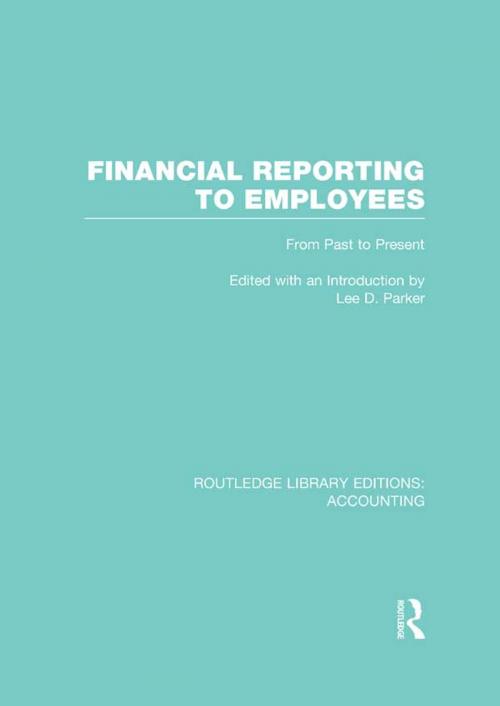Financial Reporting to Employees (RLE Accounting)
From Past to Present
Business & Finance, Accounting, Financial| Author: | Lee D. Parker | ISBN: | 9781317974178 |
| Publisher: | Taylor and Francis | Publication: | December 4, 2013 |
| Imprint: | Routledge | Language: | English |
| Author: | Lee D. Parker |
| ISBN: | 9781317974178 |
| Publisher: | Taylor and Francis |
| Publication: | December 4, 2013 |
| Imprint: | Routledge |
| Language: | English |
This book introduces accountants and managers to an historical perspective of corporate financial reporting to employees. It presents a resource for research and practice based upon a literature that for its pre-1970 decades has been largely unfamiliar to contemporary educators, researchers and practitioners alike. In addition the pieces not only provide an historical view of issues and arguments, but of actual reporting practice and audience responses. For the students and researcher, these readings offer a first-hand glimpse into the intentions of employee report producers, the critiques of observers at the time, and the requirements of employees in some instances. For report producers, managers and accountants, it reveals some of the reporting traditions that we have inherited today as well as reporting practices that have already been recommended, tried and tested in the past.
The readings selected cover a sixty year period from the 1920s through to the close of the 1970s, with the exception of the first contribution by Lewis, Parker and Sutcliffe (1984) that serves as the historical overview and analysis for the whole text.
This book introduces accountants and managers to an historical perspective of corporate financial reporting to employees. It presents a resource for research and practice based upon a literature that for its pre-1970 decades has been largely unfamiliar to contemporary educators, researchers and practitioners alike. In addition the pieces not only provide an historical view of issues and arguments, but of actual reporting practice and audience responses. For the students and researcher, these readings offer a first-hand glimpse into the intentions of employee report producers, the critiques of observers at the time, and the requirements of employees in some instances. For report producers, managers and accountants, it reveals some of the reporting traditions that we have inherited today as well as reporting practices that have already been recommended, tried and tested in the past.
The readings selected cover a sixty year period from the 1920s through to the close of the 1970s, with the exception of the first contribution by Lewis, Parker and Sutcliffe (1984) that serves as the historical overview and analysis for the whole text.















